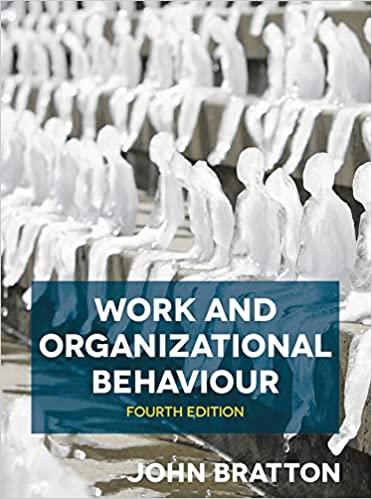1. What do you think of the neoliberal assumption that, as Thatcher said, There is no such...
Question:
1. What do you think of the neoliberal assumption that, as Thatcher said, ‘There is no such thing as society. Only individuals and their families’? Are people really isolated, unconnected competitive individuals or are they shaped by others, including some who are long dead? What arguments can be drawn upon for either of these views? This discussion is largely derived from Will Storr’s (2018) study of the evolution of the notion of a perfectible individual self from its origins in Ancient Greece to its manifestation in the culture of neoliberal societies today.
After the Depression of the 1930s and the Second World War, unshackled individualism lost favour and was replaced by an era of class compromise between rich and poor: a spirit of collectivism, state intervention in the economy, a narrowing of economic inequalities, a widening of educational opportunities and a welfare state. But there was a group of economists, journalists and politicians who followed the philosophy of ‘virtuous selfishness’ championed by the likes of the writer Ayn Rand and the Austrian economist Friedrich Hayek, and who were horrified by the rise of central, state planning in the Western democracies. This group wished to destroy collective policies and replace them with small
(non-interventionist) government, low taxation and deregulation; free markets with a totally free society in which ‘man’ would compete with ‘man’. By the 1970s the economies of the US and UK faced several crises including low economic growth and inflation, and politicians, led by President Ronald Reagan and Prime Minister Margaret Thatcher, turned to these free market ideas which are now referred to as ‘neoliberalism
Step by Step Answer:







